The High Council of the Algerian Islamic junta, via its TV channel, classifies the MAK ( at its head the artist Ferhat Mehenni) and Rachad( emanation of the Islamic Salvation Front) as “terrorist organizations”. If the first assertion is as grotesque as it is false, the second is as true as it is verifiable since the maquis of the FIS and the GIA, ancestors of Rashad were indeed fomented by the Algerian services to get rid of the Kabyle intelligentsia. Once the dirty work was done, the regime had wiped out the list of 200 000 victimes.
There are therefore undoubtedly terrorist organizations in Algeria that all the governments of the world know about. They are called Ministry of National Defense, DRS, FIS, RASHAD, Ministry of the Interior. Their leaders are Abou Chengriha, Abou Toufik, Abou Madani, Abou Zitout, founder of the Islamic Rashad party, and Abou Nezzar. The list is still long of these monsters that Algeria protects and broods like the wolf hatches its litter of predators.
The list of crimes of these terrorist groups is enormous: 126 young Kabyle people, Tahar Djaout, Smail Yefsah, Katia Bengana, Said Mekbel, Rachid Tigziri, Nabila Djahnine to name a few, have been killed, without anyone being held accountable because the military junta protects the islamist terrorists.
I challenge the Algerian terrorist regime to name the slightest terrorist act of which the MAK has been guilty since its creation in 2001.
There is none and it will not find any today or tomorrow, because the Kabyle people are in their right, a right enshrined in international legality. Therefore, the Kabyle do not need to compensate for any lack of arguments by the height of the war cries and the explosion of bombs.
Time is working for Kabylia, but the days of the Algerian junta are numbered. This is why the muslim junta struggles in its mire like a wounded beast and shouts haro on any Kabyle that moves by presenting, in a pathetic and disjointed scenario, an unnatural Rashad-MAK association hoping to deceive the world.
History is accelerating and no one will be able to stand in our way. Kabylia will win!

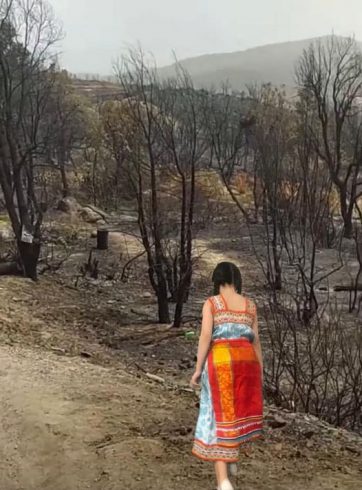
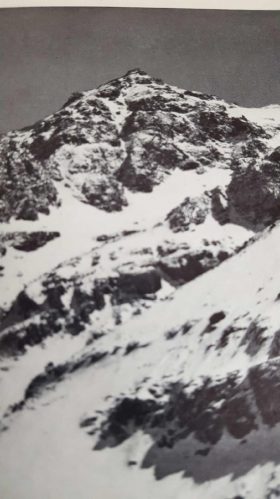
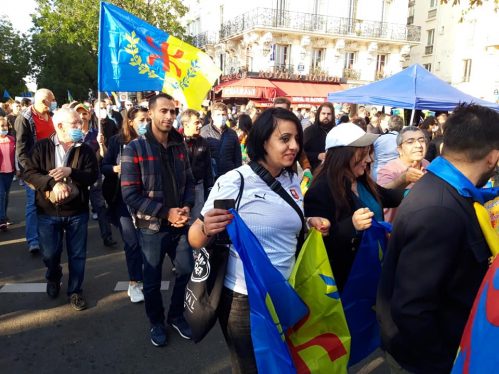
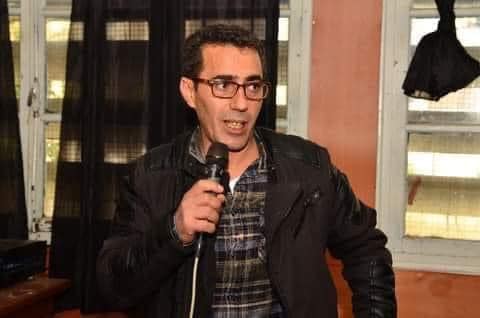
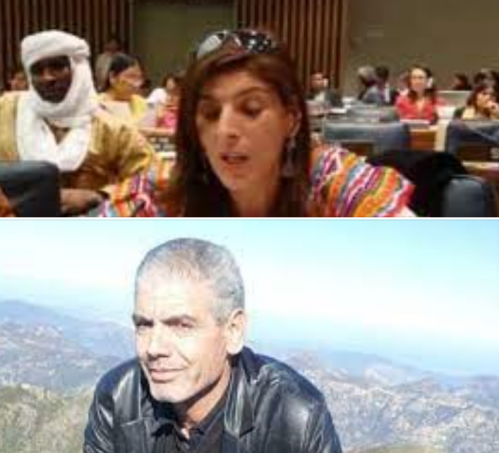
IN AN INTERVIEW THE OLDEST PORTUGUESE DAILY DAILY, FERHAT MEHENNI WANTS A CZECHOSLOVAKIC SCENARIO BETWEEN KABYLIA AND ALGERIA
LISBON, PORTUGAL (SIWEL) – President Ferhat Mehenni gave an interview to Portugal’s oldest newspaper, the daily Diário de Notícias, founded in Lisbon in 1864. Siwel publishes its version in French:
Interview given to Diário de Notícias by Ferhat Mehenni, President of the Movement for the Self-Determination of Kabylia (MAK) and of Anavad (Provisional Kabyle Government in exile). Interview by journalist Raúl M. Braga Pires.
– Introduce us to Kabylia
Kabylia is located east of Algiers and has an area of approximately 40,000 km2 and a population density among the highest in the world. There are around 12 million Kabyles, eight of whom live in Kabylia, two in Algiers and two in France.
It was annexed to French Algeria only by the force of bayonets in 1857. Insurgent in 1871, it was unable to regain its sovereignty. In 1926, she set out in search of alliances with all the peoples of North Africa. Only a few Algerians followed her. It was enough to start the Algerian war. Worn out by this violent enterprise which had lasted almost eight years, she saw herself, at independence, dispossessed of her victory by the border army freshly arrived from Morocco and Tunisia. The war waged in Kabylia (1963-1965) against this army was impossible to win. The Kabyles were already exhausted and had lost more than 200,000 men in the Algerian war.
Since 1965, it has been hell for her. Prohibition of its language, denied in its existence and its imprisoned insurgents. It was from the 1970s that it was taken over by a new generation which chose to defend its rights peacefully and politically. In 1980, she took to the streets against the oppression of which she was a victim and to claim linguistic and cultural rights. April 20 of that year has been celebrated for 41 years. Thanks to the Berber Cultural Movement (MCB) she succeeded in wresting political pluralism in Algeria. In 1994-95, she observed a school boycott against her Arabization and for the recognition of her language. In 2001, she took to the streets again, but Algeria shot at its peaceful protesters, killing 130 among them. It is since this “black spring” that we have decided to first claim autonomy before opting, with the establishment of the Anavad (Kabyle Provisional Government in exile) for the right to self-determination and ‘independence.
– I have the impression that this moment, 2021, is like a moment of rebirth of MAK. Is this impression correct?
Like all national liberation endeavors, we have our ups and downs. Currently the support of the Kabyle people for the cause of their independence is almost total. The popular marches to which we called on April 20 were a hit everywhere, both in Kabylia and abroad. This is what sets off the repressive fury of the Algerian colonial power to which we always respond with calm and reason. The right of peoples to self-determination is for us imprescriptible and inalienable. And we stop there. On April 25, the Algerian defense ministry launched a media offensive to accuse us of being terrorists and all of Algeria laughs again!
However, to answer your question, this is not a renaissance of the MAK, the MAK has never been killed, but it is a moment of success. We have just recorded some resounding victories. After the total boycott of the Algerian presidential election (12/12/2019), then of the constitutional revision (01/11/2020), these marches are a harbinger of the total boycott of the Algerian legislative elections scheduled for this 12/06/2021. Thus, peacefully, we are separating politically from Algeria, which is carrying out an operation still in progress, called “Operation Zero Kabyles” and through which is inscribed an anti-Kabyle genocidal objective.
– Is your success due to the end of the Bouteflika Presidency? In the context of the change that the Hirak would have brought? Or to the celebration of the 20th anniversary of the MAK?
We do not owe our success to Bouteflika’s inability to govern, but to the legitimacy of our approach and the merits of our cause. The dissensions at the top of the military hierarchy which constitutes the true power in Algeria, are not new. They date from the death of dictator Boumediene in December 1978. They are therefore over 40 years old. And in Bouteflika’s time, we have also recorded resounding victories since 2009.
The Hirak, which at the beginning was channeled against Bouteflika’s 5th term as President of Algeria, rather blurred Kabylia’s political benchmarks a little and we stood out from it from the start. Its resumption, for almost three months now, has been increasingly used, particularly in Algiers, to fight us by making its spokespersons speak against the MAK and its project of self-determination. Our strength lies in the clarity of our strategic claim and the consistency of our approach and our positions and not in the weakness of the adversary or the enemy.
– What is the situation in Kabylia and the Kabylians at the moment?
Kabylia and the Kabyles are currently more mobilized than ever to wrest their right to sit in the United Nations. We are an exemplary and civilized people. Despite the repression and the false propaganda of the regime which tries to demonize us, we oppose denial and firmness. The Algerian power wants to push us to the fault but we refuse and will always refuse to fall into violence or clandestinity. We are taking up our frank and peaceful fight for our independence before the whole world. We will not take the bush, we will not become violent. Law, reason, intelligence and determination are our best weapons.
The socio-economic situation is catastrophic and the Covid pandemic has wreaked havoc there. Economic development is blocked there by Algiers and it is thanks to its emigration that Kabylia holds its own. The only infrastructural projects programmed there concern only the establishment of new prisons and new military barracks. The earthquake that has just struck the town of Vgayet has left many victims of the government refusing to deal with it. The taxation practiced in Kabylia is very severe and private investors are discouraged and redirected to other regions. Algiers is even preparing to destroy the most beautiful city of Kabylia, Vgayet (Béjaïa) to exploit a zinc and lead deposit and another, offshore for shale oil. The judiciary is being used to bring down all the Kabyle political, military and industrial leaders. In recent times, it is mainly Kabyle activists, MAK or Hirak, who are brought to justice with cases without evidence. Walid Nekkiche, a Kabyle student, was raped during torture sessions to make him confess he was an MAK activist and to make serious, unfounded accusations against us. Djamel Azaim and Lounès Hamzi are in prison for the sole fault of being with us.
Kabylia is revolted against the fate reserved for it by Algeria and aspires to live sovereign with respect for its language which, to this day is denied, its values and its skills.
– How, from France, do you communicate with the Kabyles in Kabylia and what is their “feedback” about your message?
Multimedia has erased distances and the plurality of messaging systems allow me a permanent connection in real time with the field. Today, in my forced exile, I feel at home in Kabylia. I communicate with all Kabyle citizens. All I need is the air, the earth and the local scent to be totally there.
We have a news agency (Siwel.info), a television (TaqVaylit.TV) and tens of thousands of activists who are very active on social networks. At the slightest event, at the slightest questioning of activists, we are informed. The globalization of multimedia contributes to the advancement of democracy and the decline of dictatorships on planet Earth.
– Do you have a communication channel with the Presidency or the Algerian Government? What are you prepared to negotiate with Algiers and under what terms?
The Algerian authorities insist on not recognizing us. With us, he prefers arm wrestling to dialogue. It is a military power which knows no other language than that of violence and force; he does not realize that barbarism is no longer appropriate in a world where the values of peace, freedom and human rights have eroded the share of arbitrariness. This is the reason why we refuse to fall into his trap.
We are ready to discuss with Algiers, under the auspices of the UN, the modalities, stages and deadlines, in short, the conditions for a solemn referendum on the future of Kabylia …
– In one of your last interventions, you spoke a lot to the soldiers to challenge them about their massive presence in Kabylia. What does that mean ? Is Kabylia militarily occupied? Do the military have their own agenda independent of the political agenda? Are the military preventing your political and cultural activities?
Yes, Kabylia is under military occupation. The army has unnecessarily massed troops there, fearing that we will rebel and take up arms. It’s wasted, we have not taken up arms and we have no intention of doing so. If it’s just to intimidate us, we’ve already conquered fear. It was Black Spring and it has been twenty years since the Kabyle people responded to the intimidation attempts by telling the generals and Bouteflika: “You cannot kill us, we are already dead!” I spoke to the military because they are the real power and they position themselves as our obligatory interlocutors. We tell them that the Kabyle question is not of a military nature, but a political one. Therefore, it does not fall under their jurisdiction. If the army’s vocation is to defend the territorial integrity of the country, it is first and foremost against an external enemy or against an internal armed rebellion, but not against a peaceful people who simply claim their right to self-determination by virtue of international conventions ratified by Algeria. These soldiers lack coherence when they support, including militarily, the implementation of this same right in other countries and for other peoples and refuse it at home to the Kabyle people.
The soldiers are in an outdated logic. They are out of step. They have no agenda other than that of possible unnecessary and counterproductive aggression on their institution and its values.
– In a scenario of an independent Kabylia, what would be its relationship with Algeria, with France, with Morocco, with Europe and with Africa?
We dream of a Czechoslovakian scenario. A referendum consultation for an amicable separation. This would preserve an exemplary quality of relations with our immediate neighbor. We would like to have the best economic, political and cultural ties with Algeria, Morocco and Tunisia, as with France, the European Union, the USA and Russia as well as the African continent and the Arab countries. Kabylia is dynamic and catchy. It will be an actor of peace and prosperity in the Mediterranean basin and a bridge between Africa and Europe …
– In short, what is the road that will bring Kabylia to independence?
Only the democratic and peaceful path can offer Algeria a top exit. The exercise of the right to self-determination is the royal road. The Kabyle people will speak out on their desire for the future in full conscience and transparency, in the presence of international observers duly mandated by the UN. I pray it is! And the sooner Algeria gets there, the less disastrous the outcome will be.
Interview by journalist Raúl M. Braga Pires
SIWEL with DIÁRIO DE NOTÍCIAS 172,000 MAY 21
Source: https://www.dn.pt/internacional/ferhat-mehenni-a-abrilada-kabyla-13723586.html
The CMA forgets to specify that France is pulling the strings of the Algerian puppets because it is this country which created the Arab people, the Arab world … and even Islam which degenerated from Arian unitary Christianity. This explains the multitude of Islamic and Arab institutions in French territory.
____
Françalgérie or the neocolonial policy of France
To everyone’s amazement, the French police summoned on May 18, 2021 in a police station in Paris, Mr. Ferhat Mehenni, President of the Kabyle Provisional Government (GPK) in exile and of the Movement for the Self-Determination of Kabylia (MAK). After a few hours spent in the Parisian police premises, Mr. Mehenni came out free and without any prosecution being brought against him. The next day, in front of the press, Ferhat Mehenni declared “to ignore everything about this affair” and his lawyer specified that the police heard his client about his bank card which would have been used fraudulently by “an organized band” and that Mr. Mehenni was the victim of a malicious act.
Ferhat Mehenni is a Kabyle politician who has taken refuge in France for fifteen years, where he continues his political fight for the right to self-determination of Kabylia within a legal framework. Mr. Mehenni enjoys a solid reputation for honor and humanism which make him a man highly respected even by those who do not share his political ideas and project. Until proven otherwise, he cannot be suspected of any breach of morality or law.
The French authorities know all this and however summoned Mr. Mehenni but without finding anything to reproach him with. Also, are we entitled to question the legitimacy of this convocation and its real reasons?
For many astute observers, these reasons are most certainly linked to Franco-Algerian relations and in particular to the fact that the Algerian authorities continue to urge the French government to silence Ferhat Mehenni and to put an end to the activities of the Provisional Kabyle Government and the Movement. for the right to self-determination of Kabylia in France.
In fact, the summons of Mr. Mehenni by the Parisian police was preceded by a number of very recent events which all have a direct or indirect link with this affair.
On March 22, 2021, Emmanuel Macron, President of the French Republic promulgates the extradition agreement between France and Algeria. However, Ferhat Mehenni is not extraditable because he enjoys the protection of the Geneva Convention which provides that a refugee cannot be returned to a country where his life or freedom would be seriously threatened.
On April 8, François Lecointre, Chief of Staff of the French Armies, paid a visit to Algeria where he had talks, in particular with his Algerian counterpart. For the Algerian generals hated by the people, this visit is worth recognition and at least moral support.
On April 25, the Algerian defense ministry published a statement in which it accuses the Movement for the Self-determination of Kabylia of being “involved in the planning of attacks and criminal acts” in Algeria but without providing the slightest evidence to support these serious accusations. Ferhat Mehenni, President of the Movement for the Self-Determination of Kabylia reacted immediately by calling the Algerian defense ministry’s allegations a “lie” and reaffirming the peaceful nature of his movement.
On May 11, the Algerian press reported that “Algerian President Tebboune received a phone call from his French counterpart Emmanuel Macron. This is not the first time that the two heads of state have spoken over the phone. The French president has also been committed for some time now, to “do everything possible to help President Tebboune”, while he came to power despite a 60% abstention in Algeria and a zero history. vote in Kabylia. Moreover, Mr. Tebboune only represents the civilian facade of a regime still firmly held by a military junta. The Algerian generals do not hide the fact that they are the only and true decision-makers in all areas, including in the implementation of the
permanent repression against peaceful demonstrators and in the strategy of destruction of Kabylia.
On May 18, the very day of Ferhat Mehenni’s hearing at the Paris police station, the Algerian High Security Council, composed mainly of soldiers but chaired by the Head of State Abdelmadjid Tebboune, decided to classify the Movement for the Self-determination of Kabylia (MAK) as a “terrorist organization”. For the Kabyles, MAK supporters or not, this senseless decision is null and void because it is common knowledge that this movement has been acting since its creation following the black spring of 2001 in Kabylia, in a democratic and peaceful manner. In reality, the Algerian generals are targeting all the Kabyles and Kabylia as a territory and a people.
In conclusion, it is clear that France supports the Algerian military regime and even seems to submit to all its wishes. In doing so, France shares the responsibility for all the repressive actions and the unveiled threats of the Algerian generals against Kabylia.
This worries a lot the Franco-Amazigh community with two million members including one million Franco-Kabyles. This community wishes and supports cooperation and friendship between peoples but will never accept that France be the friend of a military dictatorship like the one that has raged in Algeria for sixty years and which leaves no other alternative to citizens. than repression, death or exile.
Alongside the Franco-Amazigh community, the Congrès Mondial Amazigh (CMA), an international non-governmental organization for the protection and promotion of the rights of Amazighs, urges the French Head of State and the French government to immediately cease their support to the Algerian military regime. The France we want is the one which must establish equitable relations with third countries and remain faithful and respectful of democratic principles and of human and peoples’ rights, whatever the cost.
The CMA, which follows very closely the worrying situation in Algeria and particularly in Kabylia, will not fail to alert whenever necessary the Franco-Amazigh community which will be called, especially during the electoral polls, to positively or negatively sanction the government. French.
Paris, 05/24/2021
The Office of the CMA.